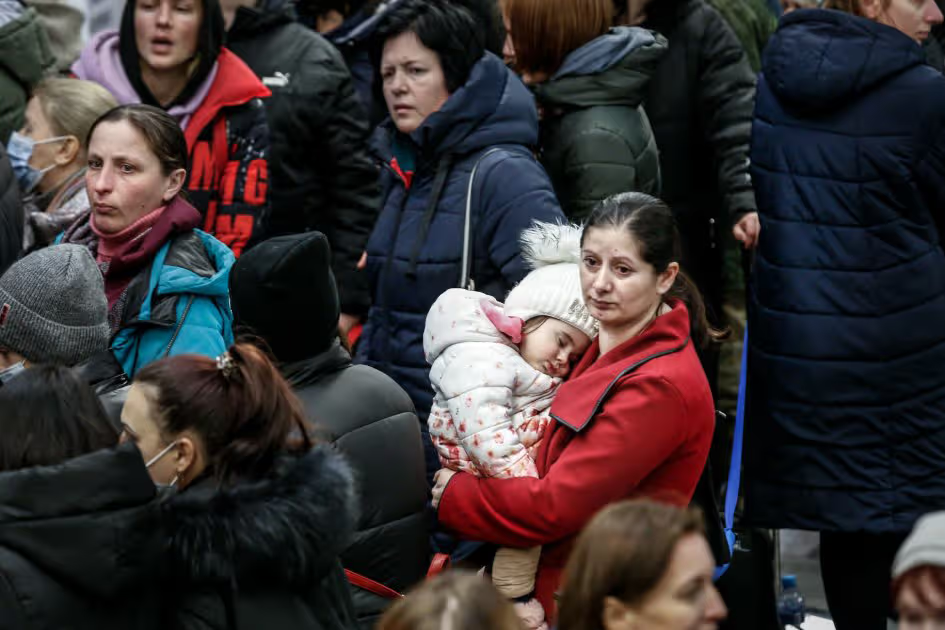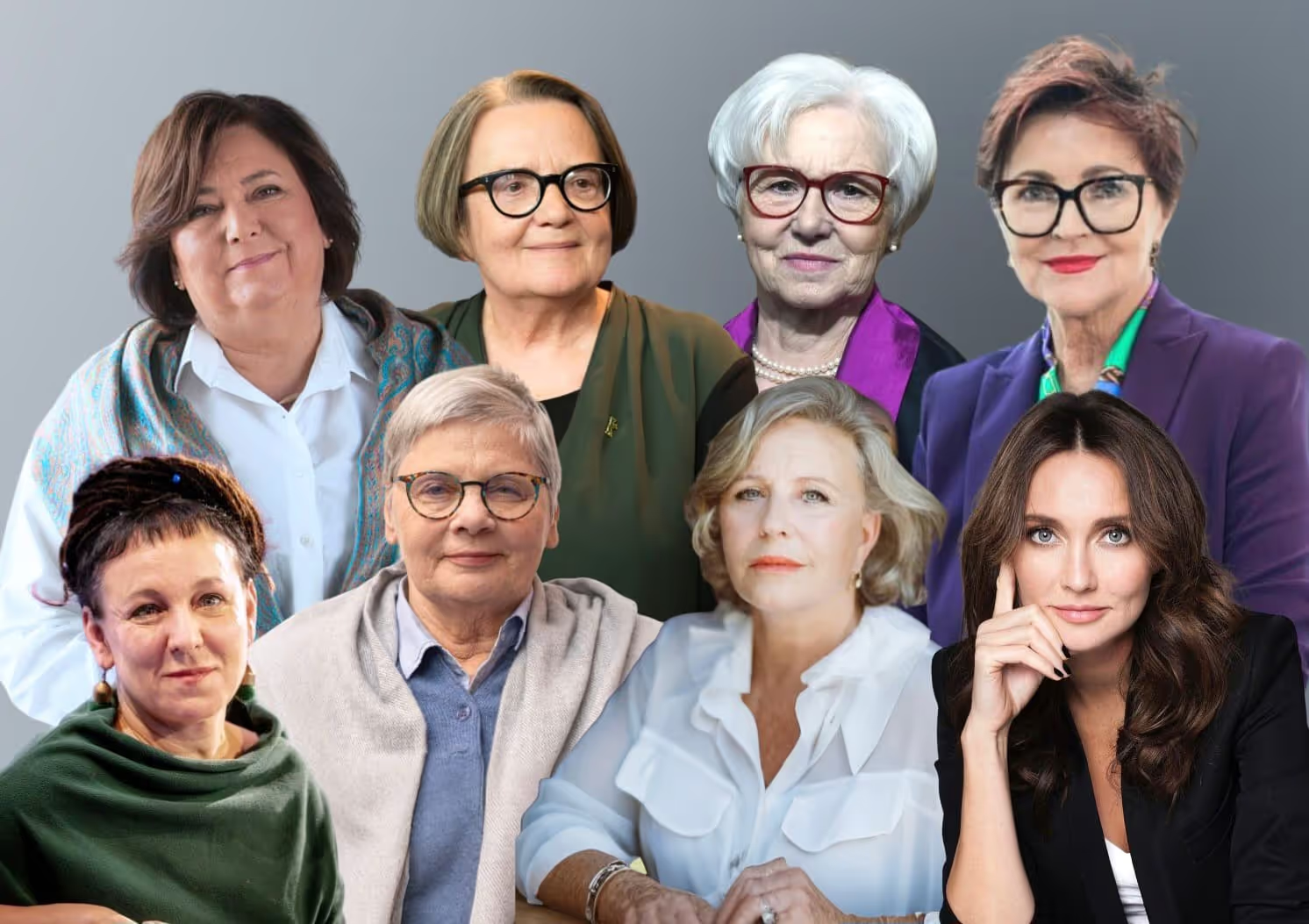Support Sestry
Even a small contribution to real journalism helps strengthen democracy. Join us, and together we will tell the world the inspiring stories of people fighting for freedom!
З 2022 року Польща прийняла кілька мільйонів громадян України. Жінок, дітей, людей похилого віку, цілі сім'ї — часто з однією валізою і життям, залишеним за кордоном. Хоча багато з цих людей розглядали Польщу як транзитний пункт, значна частина вирішила залишитися, влаштувавшись тут на роботу, записавши дітей до шкіл і будуючи нове життя. І саме тут починається проблема, яка, на жаль, рідко з'являється на перших шпальтах газет чи на телебаченні. Проблема, яка в довгостроковій перспективі вирішить все: психологічна безпека — необхідний стовп ширшої соціальної безпеки. Без неї не буде ні освіти, ні роботи, ні інтеграції, ні спокою в суспільстві. Тільки напруга, тиша і взаємна недовіра.
Що таке психологічна безпека
Це стан, в якому людина почувається безпечно у відносинах з іншими — прийнятою, такою, яку не оцінюють, вільною від сорому й страху. Коли їй не потрібно прикидатися, виправдовуватися, ховатися. Коли вона може бути собою і діяти — вчитися, працювати, жити. Це не розкіш. Це основна умова для розвитку і психічної рівноваги.
Для людини, яка пережила бомбардування, втечу з країни, розлуку з близькими та адаптаційний стрес, безпека стає ключовими ліками. Тільки от дуже важко її відновити в чужій країні, з чужою мовою та в незнайомій системі
Психологічна безпека — це основа інтеграції і функціонування без стигматизації. Це не тільки відсутність загроз, але й наявність позитивних спільних досвідів, тобто емпатії та солідарності. Дрібні жести з боку поляків — доброзичливість сусіда, допомога в оформленні документів, підтримка вчителя в школі чи розуміння з боку роботодавця — створюють відчуття, що новоприбулі з України почуваються «як вдома». Такі досвіди створюють психологічні мости: емоційні зв'язки й довіру, які не тільки пом'якшують наслідки воєнної травми, але й будують фундамент спільного суспільства.
Коли мозок бореться за виживання, він не буде вивчати тригонометрію
У польських школах навчається близько 150 тисяч українських дітей. І хоча в коридорах цього не видно, чимало з них щодня ходять по мінному полю емоцій: страху, відчуття чужості, мовного бар'єру, нерозуміння, іноді тихої (або голосної) неприязні. Адже це молоді люди, які несуть досвід втечі від війни, втрати дому, а іноді й близьких.
Психологія говорить чітко: дитина, яка не почувається в безпеці, не здатна вчитися. Мозок у стресовому стані не обробляє знання — він переживає.
Режим «біжи або борись» перемагає «розв'яжи задачу з математики». І це не питання ліні чи відсутності здібностей. Це біологія
Школа — це полігон для стосунків. Вона може бути мінним полем або прекрасним садом.
На жаль, польська школа рідко готова до дітей з міграційним і воєнним досвідом. Вчителі мають добрі наміри, але часто їм бракує часу, інструментів і підтримки. Бракує культурних асистентів, інтеграційних програм, роботи з класом над емпатією та розумінням відмінностей. Адже ці діти не потребують «більше граматики» — вони потребують відчуття, що їх помічають, розуміють і що вони в безпеці.
Відторгнення, насмішки, байдужість — це рани, які не завжди кровоточать зовні, але довго болять всередині. У підлітків це може призвести до замкнутості, гніву, депресії. Молоді люди замість влитися в клас, вливаються у смартфон. І зникають з наших очей, навіть перебуваючи вдома. Це призводить до тихої відчуженості українських дітей. Це драма на індивідуальному рівні — і бомба із затримкою вибуху для всього суспільства. Адже це майбутні громадяни. Тому якщо сьогодні школа не прийме їх з відкритістю, завтра вони можуть не захотіти бути частиною спільноти.
Необхідна загальнонаціональна, реальна програма інтеграції в школах, а не лише тимчасові заходи та доброзичливість окремих осіб. Бо діти не інтегруються самі
Дорослі у стресових ситуаціях не просуваються по службі
Психологічна безпека не закінчується в шкільному коридорі. Вона стосується і дорослих — тих, хто працює, шукає роботу або намагається повернутися до своєї професії. Для багатьох українців це повернення до нульової позначки — незважаючи на освіту та досвід, вони починають з найнижчих посад, з мовними труднощами, а часто й з багажем війни.
І тут виникає проблема: хронічний стрес і відсутність почуття безпеки блокують професійний розвиток. Люди не беруться за складні завдання, бо бояться висміювання. Не відвідують курси, бо «все одно не впораються». Не просять про підвищення, бо «краще не висуватися». «У трамваї я буду говорити тихо по телефону, щоб не привертати уваги. Бо українці всюди...» Це не відсутність амбіцій. Це біологічна реакція мозку на тривалий стрес.
Якщо стресовий стан триває місяцями, наслідки серйозні: вигорання, депресія, відмова від спілкування. Держава втрачає потенціал, суспільство втрачає людей, людина втрачає себе
Неурядові організації як пожежники, що гасять людські кризи
У всій цій мозаїці найбільшу роботу часто виконують неурядові організації (НУО). Саме вони організовують психологічну підтримку, міжкультурну освіту, юридичну допомогу, групи підтримки, семінари, мовні курси. Саме НУО часто є першим притулком — вони дають місце, де можна відпочити, поговорити, відновити гідність. Важливо, що ці організації не тільки «допомагають українцям». Вони будують соціальну безпеку. З'єднують людей. Створюють простір, де поляки та українці знайомляться, вчаться один у одного, співпрацюють. Це фундамент будь-якого здорового суспільства.
Наратив має значення — і більший, ніж нам здається
Те, що ми говоримо — у ЗМІ, школах, політиці й за чашкою чаю, — формує реальність. Позитивний наратив, що показує співпрацю, успіхи, емпатію, дає людям надію і зміцнює спільноту. Негативна нарація — що «українці живуть краще», «забирають у нас» або «не хочуть інтегруватися» — ранить, розділяє і травмує людей.
Люди, які щодня чують, що вони є проблемою, зрештою почнуть у це вірити. І потім не будуть питати, як долучитися. Вони будуть думати тільки про те, як вижити
Справжня інтеграція — це не «завдання українців» чи «наш обов'язок перед ними». Це процес спільного будівництва суспільства, в якому кожен — незалежно від походження — має своє місце, сенс і вплив. Це співпраця, яка починається в міжособистісних стосунках і яка має бути системно підкріплена — школами, органами влади, громадськими організаціями та медіа. Адже саме ЗМІ — телебачення, радіо, преса, інтернет-портали, інфлюенсери — мають сьогодні величезну владу: владу над наративом. А наратив створює реальність. Якщо люди день у день чують, що мігранти «забирають пільги», «займають місця», «отримують більше», — вони починають у це вірити. З'являються гнів, заздрість, страх. З цих емоцій не народиться ані солідарність, ані спільнота, а лише фрустрація і агресія.
На надійних ЗМІ сьогодні лежить величезна відповідальність: показувати цілісну картину. Пояснювати, що війна не була вибором цих людей. Що допомога біженцям — це не питання «віддавання» їм чогось свого, а інвестиція в соціальний спокій. Що ніхто нічого не забирає, якщо держава добре управляє ресурсами. Що страх перед чужим часто випливає з незнання, а не злих намірів. І що в одному класі, на одній парті можуть вчитися польська й українська дитина — і обоє від цього виграють.
Але ЗМІ також повинні дбати про почуття безпеки поляків, бо їхня тривога є реальною. Замість ігнорувати побоювання, варто пояснювати, звідки вони беруться, розвіювати їх, обґрунтовувати фактами, шукати рішення. Інтеграційна нарація — це не «тільки позитивна» нарація, це відповідальна нарація. Така, що не викликає страху, а дає відчуття впливу.
На стресі, упередженнях і почутті загрози ми не побудуємо спільного суспільства. Ми можемо побудувати його на емпатії, освіті, мудрій політиці та словах, які об'єднують, а не розділяють. Адже дах над головою — це лише початок. Без спокою ніхто не вчиться, не працює, не довіряє. Без довіри ніхто не залишається надовго. А без спільноти не буде сильної Польщі, в підсиленні якої також зацікавлені українці.
Ukrainian from Donbas, Polish from Wroclaw, Master of Public Law and International Relations (KIMO/Kyiv, Ukraine). Since 2002, she has gained professional experience in UN structures in Ukraine, as well as in other international projects. She has been living in Poland for 10 years, where for the past 3 years she has been actively working for the benefit of the Ukrainian community as the founder of the Ukrainkawpolsce.pl Foundation, which supports migrant women in their personal and professional development.


















